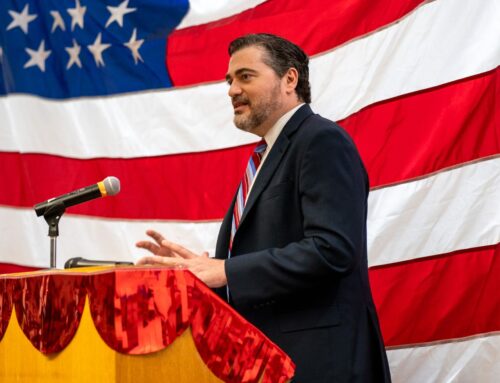Proposed Changes to Fla.’s Construction Defect Statute Require Property Owners to Fully Vet Claims Before Filing Suit
If the intended purpose of Chapter 558 (aka Florida’s Construction Defect statute) is to reduce litigation and provide an opportunity to resolve construction defect claims pre-suit, the statute has woefully failed at its objective.
By Jordan Nadel and George T. Breur | April 27, 2021 at 10:00 AM
Jordan Nadel, left, and George T. Breur, right, of Mark Migdal & Hayden. Courtesy photos
If the intended purpose of Chapter 558 (aka Florida’s Construction Defect statute) is to reduce litigation and provide an opportunity to resolve construction defect claims pre-suit, the statute has woefully failed at its objective. The current pre-suit process under Chapter 558 is fairly easy to comply with, but rarely results in a resolution. Instead, the outcome is generally a multi-party lawsuit involving every contractor, subcontractor, supplier and design professional who set foot on the construction project. Such litigation is costly and time consuming, and generally difficult to advance given the significant number of parties, adjusters, attorneys and experts who inevitably become involved. The Florida legislature’s proposed changes to Chapter 558, as reflected in Senate Bill 270/House Bill 21, aim to make the pre-suit process more effective and limit this type of litigation by requiring property owners to provide added transparency and fully vet their claims before filing suit.
There are several significant changes to the statute which fall on the claimant. First, under the proposed amendment, before sending a notice of claim, a property owner must exhaust any applicable warranty claims. This change makes sense and is consistent with the statute’s goal of facilitating quick and cost-efficient resolutions. If there is a valid warranty for a component of work that is arguably defective, the property owner should pursue that avenue prior to expending time, money, and judicial resources to resolve the issue—just as the 558 statute intends.
If there is no warranty, the warranty is expired, or the warranty claim is otherwise denied, a claimant may then serve its pre-suit notice of claim. The proposed amendment now imposes a duty on the claimant to describe in specific detail (as opposed to the previous “reasonable” detail notice requirement) each alleged construction defect and include at least one photograph of the defect, as well as any repair estimates obtained. Notably, most responsible property owners embarking on the 558 process already comply with this requirement. It is common practice for a claimant to attach an initial expert consultant’s report to its 558 notice, which provides detailed information (including pictures and costs to repair) of the various defects plaguing its property. The amendment makes this best practice a baseline, as it should be.
Another proposed change to the 558 process, and one that has drawn ire from those opposed to the amendments, is a requirement that a claimant personally affirm knowledge of the defect, subject to the penalty of perjury. For claimants who have valid, thoroughly evaluated claims, this added prerequisite will not be an obstacle. In fact, such an affirmation signals to contractors and insurers that an owner’s claims are legitimate and deserving of a thorough evaluation.
Additionally, the legislature has proposed an entirely new section to Chapter 558 that will require a property owner to notify its mortgagee if it obtains recovery of a monetary settlement or a judgment of its defect claim. This requirement is likely contained in the mortgage anyway, is not burdensome, and seeks to ensure that property owners are using recovered funds to actually repair the defects which they have affirmed, under penalty of perjury, exist and must be remediated.
The only contemplated change putting additional onus on potential defendants is the proposed requirement that a recipient of a 558 notice must serve a copy of the notice on each contractor, subcontractor, supplier, or design professional that the recipient believes is responsible for the construction defects. The current version of Ch. 558 permits notice to be served at the recipient’s discretion. Generally speaking, this is already happening in practice and benefits the process overall by allocating responsibility to the appropriate parties.
In the same bills, the legislature has also proposed a change to statutory civil causes of action for building code violations. The proposed amendment to Fla. Stat. Section 553.84 limits causes of actions arising from building code violations to those alleging a “material” violation of the Florida Building Code. A material violation is defined as a violation that exists within the completed building, structure, or facility which may reasonably result, or has resulted, in physical harm to a person or significant damage to the performance of a building or its systems. The proposed amendment (like the changes to Chapter 558) also requires an owner to exhaust any applicable warranty claims before bringing suit.
The impact of these changes (we hope) will facilitate meaningful and good faith participation in pre-suit resolution of construction defect claims. We also expect that these changes will weed out frivolous and attorney driven claims, unclog the complex litigation divisions and make way for the most serious construction defect claims. To be sure, insurers and downstream subcontractors (often small businesses) will benefit by not getting caught up in endless litigation defending third-party claims for relatively minor issues, as we often see in construction defect cases.
George Bruer, is a partner at Mark Migdal & Hayden. He focuses his practice on construction litigation and bank and mortgage fraud recovery on behalf of the FDIC and national banking institutions in federal court where he has developed a result-oriented approach designed to efficiently achieve maximum recoveries for his clients.
Jordan Nadel is a partner with the firm. A commercial litigator who focuses his practice in the area of construction law, Jordan represents clients in all aspects of the construction industry including: developers, community associations, government entities, contractors, subcontractors and suppliers.





